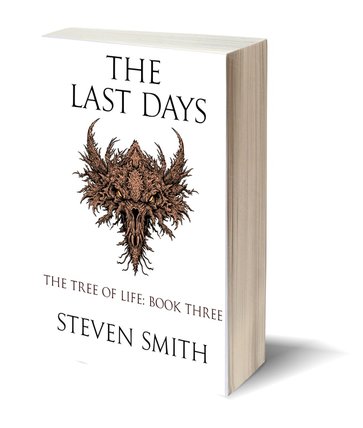|
You’ve put your heart and soul into your trilogy; you’ve forged worlds, invented characters and shaped a compelling narrative. Over three novels you’ve built intrigue and suspense – you’ve hooked the reader but how do you make sure your story finishes strongly?
In this final post of my three-part blog series covering lessons I learned from writing The Tree of Life, I am going to discuss how to bring your trilogy to a satisfying conclusion. I will risk a few borderline spoilers about my books, but certainly won’t give away the actual ending! The lessons I learned helped not only my trilogy but also my most recent novel, This Sacred Isle, and I hope these posts offer some helpful and applicable advice to anyone undertaking the task of writing a three-book series. Of course, a successful ending is important in any book, but the significance is magnified within a trilogy. In my experience planning is crucial, both to sustain the narrative drive and avoid inconsistency – (check out my first post in this series, which covers planning in detail). By the third book, you will have a mass of characters, events, settings and backstory; to control this you must plan ahead to make sure you don’t leave plot threads dangling.
But beyond planning, I believe there are three significant danger areas when ending a trilogy, three traps you should strive to avoid:
Don’t slow your third book down with too much back story You will have already covered a lot of material in books one and two, so much so that it’s tempting to rerun over some of that back story just to make sure your reader can be fully orientated within the story. But you must tread carefully. The third book needs to have strong momentum, moving towards a denouement. Of course you will still need exposition, but do not bog down your third instalment covering ground already established in the first two books. Your reader cannot be expected to remember all relevant details from books one and two, but neither will they have forgotten everything and they will not appreciate reading about elements they have already covered. When writing The Last Days, I worried constantly about how much I should refer to past events within the story as prompts and ‘reminders’ for readers – however, I soon discovered these bogged down the book’s pace, right at the time when I wanted the story’s excitement to be building to the highest pitch. As I continued to edit the book, I resolved to include as little back story as possible, especially in the final stretches of the novel - this allowed the story to breathe and (I hope) helped to make the book a more absorbing and thrilling read. So, my advice is to keep back story to a minimum and keep progressing towards the end. Know when to stop – do not keep going on, and on, and on… I worked on The Tree of Life trilogy over the course of twelve years, and the characters of Elowen, Bo, Black Francis and many others became so familiar to me, it was a little difficult to finish the story and say farewell to them! But this is dangerous territory. . . When you have created so many characters and such a detailed narrative, it is tempting in the latter, climatic stages of the third book to keep extending the story, to keep exploring new facets and add fascinating new details. This is a temptation that must be resisted! You must not allow your trilogy to overstay its welcome; don’t allow your story just to fizzle out. Finish on a high note by all means, but make sure you do finish – leave your reader wanting more, not hoping for the end to come. Do not pluck a convenient ending out of thin air As I worked on The Last Days, I found that fiction fatigue set in – although I had already worked out the climax of the story, actually achieving this (i.e. making sure the characters acted and reacted in ways true to their inner and outer journeys, and that the resolution worked in emotional and narrative terms) felt like a heavy burden. At this point, it is easy to look for convenient ways to simplify your ending but this is potentially a huge mistake. You’ve established the context of your story, the rules, the personalities, all the ingredients and momentum for a successful ending. Take your ending from your characters and the conflicts described to that point; it must reflect the way the key characters have developed and the lessons they have learned about themselves – their choices must shape the conclusion. The climax of your trilogy could be happy or sad (or somewhere in between) but it must solve the central problem or question of your story, and it must be solved by your central character or characters. Ideally, the way the story is resolved must have some resonance, with the choices made by the characters reflecting the themes of the trilogy – there is no need to be heavy handed or preachy, but the reader should be left with a sense of a universal truth having been expressed. For The Last Days, I knew it was important for Elowen and Bo to understand what was at stake, and to understand that for good to prevail, sacrifice was needed. They are both tested, both offered power – it is how they react to this and the decisions they make, that is important and that drives the story to its conclusion. Remember: the protagonist of the story must be protagonist of the ending, i.e. what he or she does determines the ending. An ending can be unexpected – a shock even – but it must arise legitimately from the story itself. Throwing in something random at the end will shatter the rules of the world you have created and infuriate your reader. And one last point: when you have finished your trilogy, take a moment to savour the feeling. It is an achievement, so allow yourself to recognise and enjoy this! I wish you the very best with your epic fantasy trilogy and I hope readers enjoy reading about the worlds you create. Takeaway tip: the conclusion of your trilogy must be a reasonable and logical development from the story and characters you have written. Do not shortchange your readers with a random, incoherent ending. Check out of the other posts in this blog series: Part 1 looks at planning Part 2 looks at world building and research The Tree of Life trilogy is now available as an ebook boxset for just £1.99 / $2.40 (each of the volumes is also available individually in both paperback and ebook format): UK Amazon US Amazon See preview below:
Are you working on a trilogy or series? How did you write the ending - and what have been the major challenges you've faced? Add a comment and join the conversation.
5 Comments
2/12/2020 02:51:43 am
I love the tips and advice! I will take note on this and apply in my future writing project. On the off chance that you need to be an author, you should complete two things over all others: read a lot and compose a lot.
Reply
Leave a Reply. |
Archives
October 2023
Categories
All
|


 RSS Feed
RSS Feed